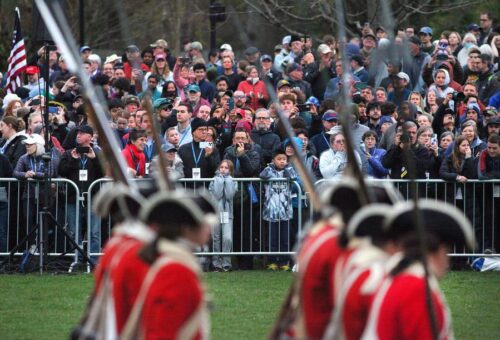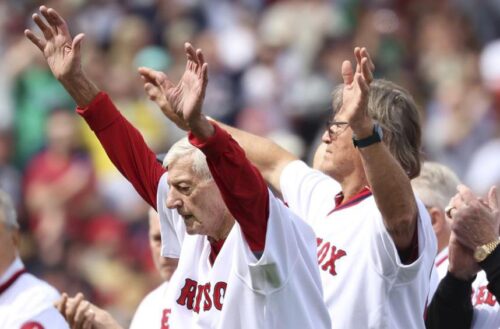Dr. Ashish K. Jha is dean of Brown University School of Public Health and a contributing Globe Opinion writer.
For more than two decades, I have provided medical care to veterans at the hospitals our nation created to serve them. I love the work, and see it as a small part of my effort to repay this country for all it has given me. And as my day job has brought me more to classrooms and meeting rooms, continuing my clinical practice caring for veterans has been an intentional choice. The Department of Veterans Affairs represents our nation’s commitment to the brave people who have served our nation so honorably. Now the Trump administration is threatening that commitment and our veterans.
The attacks on veterans and the network of services designed to care for them is breathtaking. Described in a leaked internal memo in March, the administration laid out its plans to eliminate more than 80,000 workers this year — including some 20,000 veterans. Ninety percent of VA employees work in health care, so the job cuts will disproportionately affect health services.
The problem is more than the devastating loss of jobs. It’s about the work the administration seems to deem unnecessary. The cuts take out people who help bring veterans to their appointments, an essential service considering that many veterans have been severely injured during their service and can’t get to their appointments easily.
Many of the fired workers were doing outreach and helping veterans navigate the complexities of signing up for the benefits and care they deserve. The workers being eliminated include disabled veterans who, despite their injuries, spend hours in front of screens helping other veterans gain access to critical benefits. Now these disabled vets are out of work, and the vets they helped are out of luck, facing a harder time getting access to the benefits they have earned and our nation has promised.
The VA has proposed canceling hundreds of contracts, including those deemed “mission critical’’ whose cancellation would “lead to catastrophic mission failure for essential veteran programs or health care operations.’’ These include contracts providing lifesaving care and other services — guaranteed by law — to vets exposed to burn pits and toxic chemicals in their service to our nation.
The PACT Act, passed in 2022 with broad, bipartisan support, ensures veterans exposed to these toxic chemicals get the care and services they need. Many veterans aren’t even aware of their exposure and suffer in silence. Outreach and ensuring they get the benefits and care they are entitled to is essential. Now both are threatened, and veterans facing severe, often life-threatening illness, will suffer more.
The VA’s cuts are disrupting scientific research, a core mission of the agency, including clinical trials for medicines focusing on those conditions that disproportionately affect veterans — such as PTSD, traumatic brain injury, spinal cord injury, and chemical exposures related to service. For example, one of the cuts led to stopping a clinical trial of a new drug for treatment of mouth, throat, and voice cancers. Veterans will lose out on possibly lifesaving innovations, and research on how to improve their care will languish.
There is a noxious misunderstanding of what “essential’’ services mean. Is an appointment really available to a veteran if they can’t get to the doctor? Is a veteran who was exposed to toxic chemicals truly eligible for benefits if there is no one to help them sign up? Is the suicide prevention hotline actually up and running if veterans in distress have to wait longer for help, or might not even get through to anyone at all? In a dystopian view of the world, none of this is essential. In a humane one, all of this is wrong.
All of us who work clinically in the VA focus on alleviating suffering. And that means understanding the medical history and the life history of each veteran in our care. Every time I greet a new patient in the hospital, after listening to their health story and discussing treatment, I ask about their service. What branch of the service were they in? Where did they serve?
In my two decades at the VA, I have cared for veterans who served in World War II, Korea, Vietnam, the first Gulf War, Afghanistan, and Iraq. These veterans tell the story of our country’s fight over the past century to preserve freedom and expand democracy. The act of acknowledging that service is foundational to care. And the stories these veterans share help me understand them in a way that lets me be a better doctor and, by expressing my gratitude to them, lets me be a better American.
When America turns its back on veterans, it betrays our sacred promise to all who serve. VA cuts aren’t just about budgets — they’re about whether we, as a nation, truly honor those who’ve served and will keep the promises we’ve made to honor their service. The VA’s work is America’s gratitude made tangible; undermining that work, and the jobs of our veterans, threatens the promises we’ve made and those we have yet to keep.

